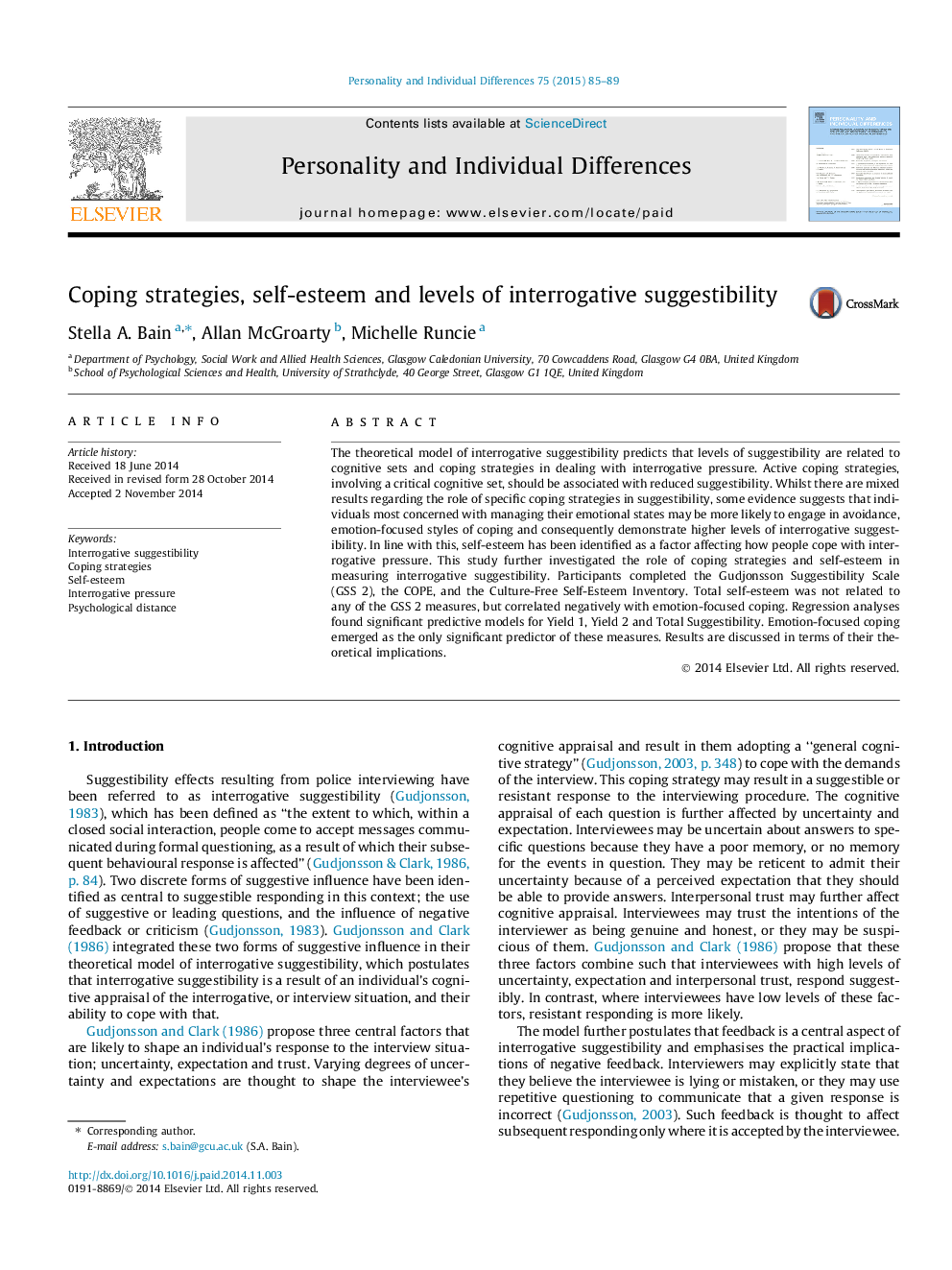| Article ID | Journal | Published Year | Pages | File Type |
|---|---|---|---|---|
| 7251722 | Personality and Individual Differences | 2015 | 5 Pages |
Abstract
The theoretical model of interrogative suggestibility predicts that levels of suggestibility are related to cognitive sets and coping strategies in dealing with interrogative pressure. Active coping strategies, involving a critical cognitive set, should be associated with reduced suggestibility. Whilst there are mixed results regarding the role of specific coping strategies in suggestibility, some evidence suggests that individuals most concerned with managing their emotional states may be more likely to engage in avoidance, emotion-focused styles of coping and consequently demonstrate higher levels of interrogative suggestibility. In line with this, self-esteem has been identified as a factor affecting how people cope with interrogative pressure. This study further investigated the role of coping strategies and self-esteem in measuring interrogative suggestibility. Participants completed the Gudjonsson Suggestibility Scale (GSS 2), the COPE, and the Culture-Free Self-Esteem Inventory. Total self-esteem was not related to any of the GSS 2 measures, but correlated negatively with emotion-focused coping. Regression analyses found significant predictive models for Yield 1, Yield 2 and Total Suggestibility. Emotion-focused coping emerged as the only significant predictor of these measures. Results are discussed in terms of their theoretical implications.
Keywords
Related Topics
Life Sciences
Neuroscience
Behavioral Neuroscience
Authors
Stella A. Bain, Allan McGroarty, Michelle Runcie,
